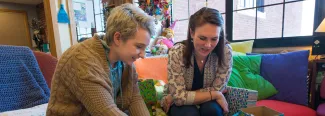 Greetings from the Director
Greetings from the Director
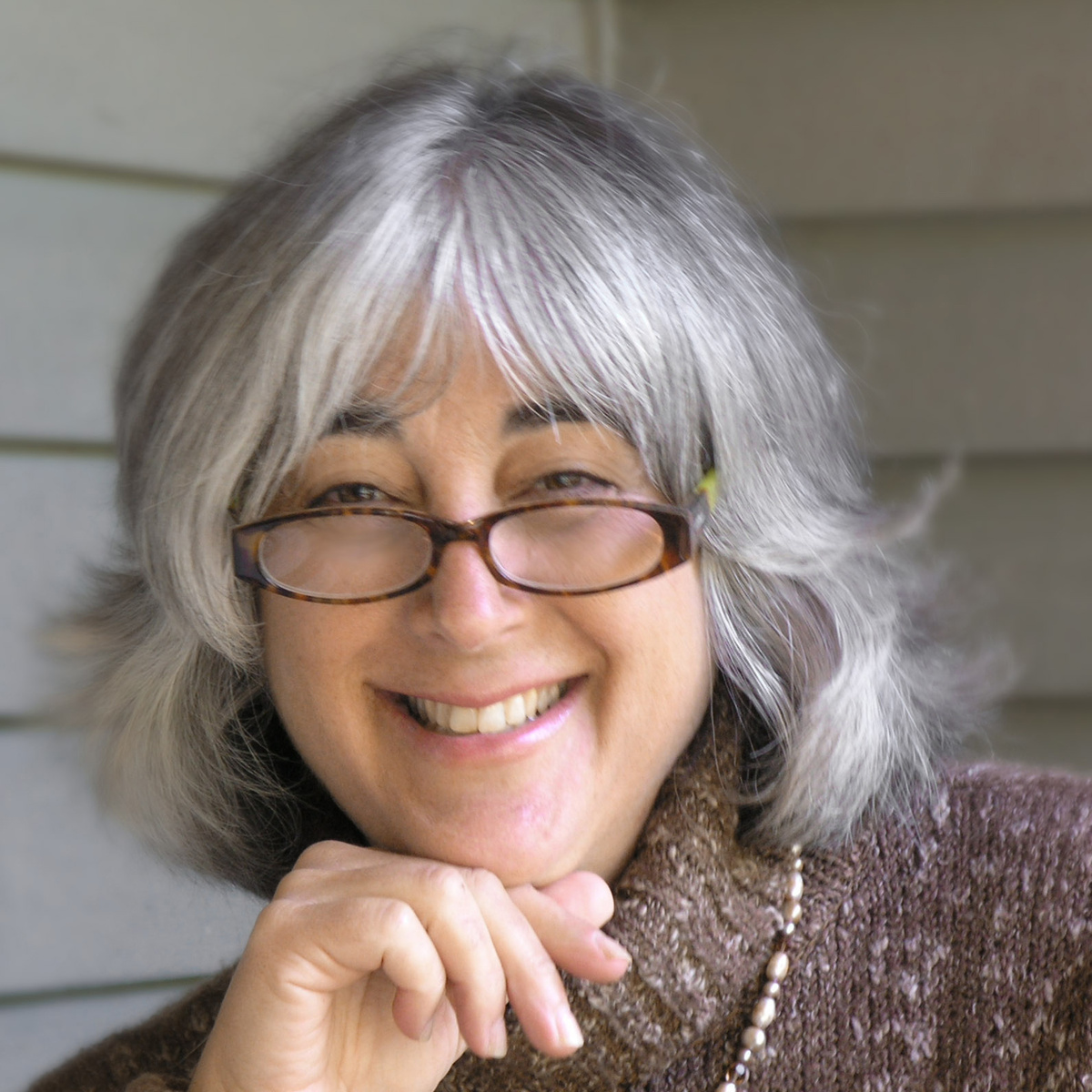
"Knowing what Thou knowest not is in a sense omniscience." — Piet Hein, poet and scientist (1905-1996)
The marketplace in Sekondi is almost impossible to navigate; so full of people and stalls, rich with scents of spices, fresh produce, fish and meat that valiantly fight their way through the ever present stench of open sewage and smoke from brush fires used for clearing and garbage disposal. The merchants are pros; they enthusiastically market their wares and invite you to bargain. Children are everywhere — the babies tended by older children, the youth are also selling or on the fishing boats that are moored at the pier. Goats and chickens run free, tripping you up if you’re not careful. I am one of a handful of white people in the marketplace and children unabashedly stare at me. Frank, the community worker I’m with, tells me that they rarely see white people, and especially one with white hair. One child asks if I’m a ghost.
Ghana is a country in Western Africa just a few degrees north of the equator. The climate is hot and humid and water is scarce and unsafe. Malaria and AIDS are serious public health problems, though no one names the latter. Mental illness and autism are health conditions that are prevalent but not talked about. Most of the people I meet are poor and deeply religious. Approximately 88% of Ghanaians practice Christianity as evidenced by the many small churches that populate the town and by the names of stores and services, for example “Jesus loves you” hair salon and “Praise the Lord” auto servicing.
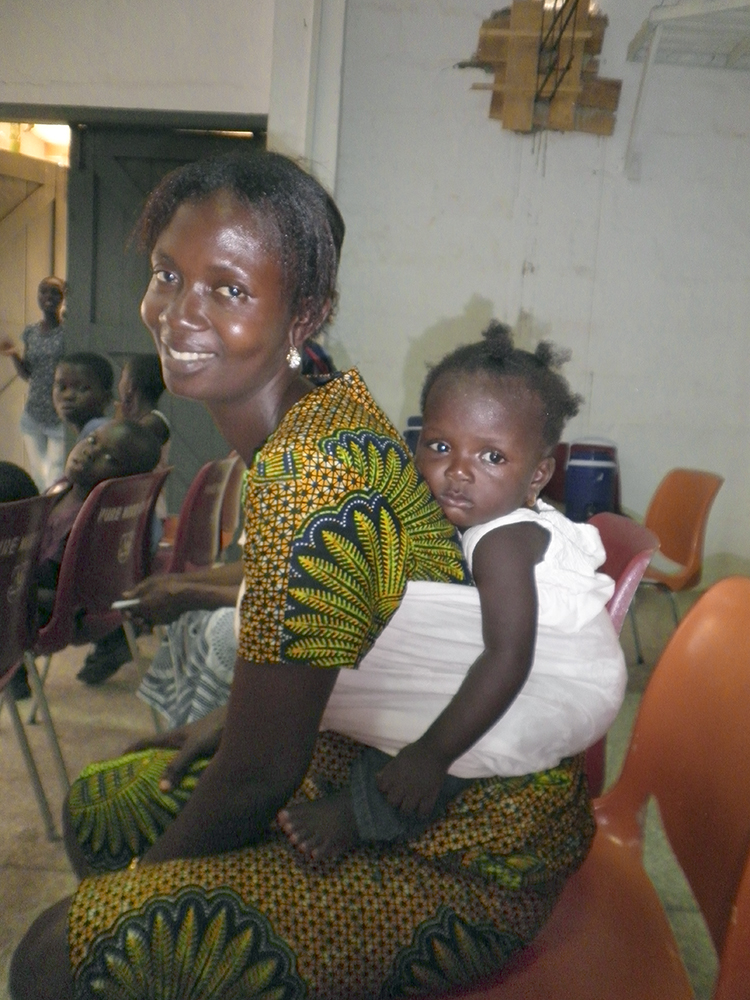 Based in community partnerships with the Ghanaian Health Service and co-facilitated by community workers, TIH provides a meaningful global learning experience for students and faculty. The TIH curriculum developed by Dr. Jennifer Morton, director of UNE’s nursing program, focuses on cultural humility, clinical practice in underserved areas and building relational trust with unfamiliar cultures. Similar to Dr. Ruth Dean’s social work concept of “informed not knowing,” TIH fosters connections based on curiosity and respect for what one doesn’t know and may not ever fully understand.I was in Ghana in March 2010 as a member of the Transcultural Immersion Healthcare (TIH) program, an interprofessional experience sponsored by UNE and the Ghana Health Service that brings health clinics to Sekondi and other rural areas reliably every year. The clinic offers a range of health services, including assisting patients in signing up for national health insurance.
Based in community partnerships with the Ghanaian Health Service and co-facilitated by community workers, TIH provides a meaningful global learning experience for students and faculty. The TIH curriculum developed by Dr. Jennifer Morton, director of UNE’s nursing program, focuses on cultural humility, clinical practice in underserved areas and building relational trust with unfamiliar cultures. Similar to Dr. Ruth Dean’s social work concept of “informed not knowing,” TIH fosters connections based on curiosity and respect for what one doesn’t know and may not ever fully understand.I was in Ghana in March 2010 as a member of the Transcultural Immersion Healthcare (TIH) program, an interprofessional experience sponsored by UNE and the Ghana Health Service that brings health clinics to Sekondi and other rural areas reliably every year. The clinic offers a range of health services, including assisting patients in signing up for national health insurance.
As a social worker, my role in the clinic was undefined. I triaged with nurses, did intake, held sick babies and played with others while mothers had their medical appointments; lent support to a man with a wound as big as my hand, comforting him while the PT and nurse gently cleansed and treated it and I learned how to test for malaria. I didn’t perform familiar social work services, rather I joined with others to complement and assist. It was on me to learn what was considered health and what was not, what could be spoken and what needed to be inferred, and most importantly I needed to learn how to translate the language of caring. This was not cultural tourism. I was learning with and from community workers, patients, merchants, colleagues, students and the Reverend and his family. I provided services commensurate with the needs and values of the culture and accepting the hospitality that welcomed me. Sekondi and its people transformed me as a social worker and as a human being in a global world. I hope you enjoy this issue of our newsletter dedicated to global social work and to the many stories brought to you by our School. -Shelley
In this Issue
News and Happenings
December graduation celebration
Congratulations again to the students who finished their coursework and graduated with their MSWs in December. A reception was held for the students, their families and friends and faculty in Ludcke Auditorium on December 12. Thank you to all who participated and showed their support. Congrats again to the new UNE alumni!
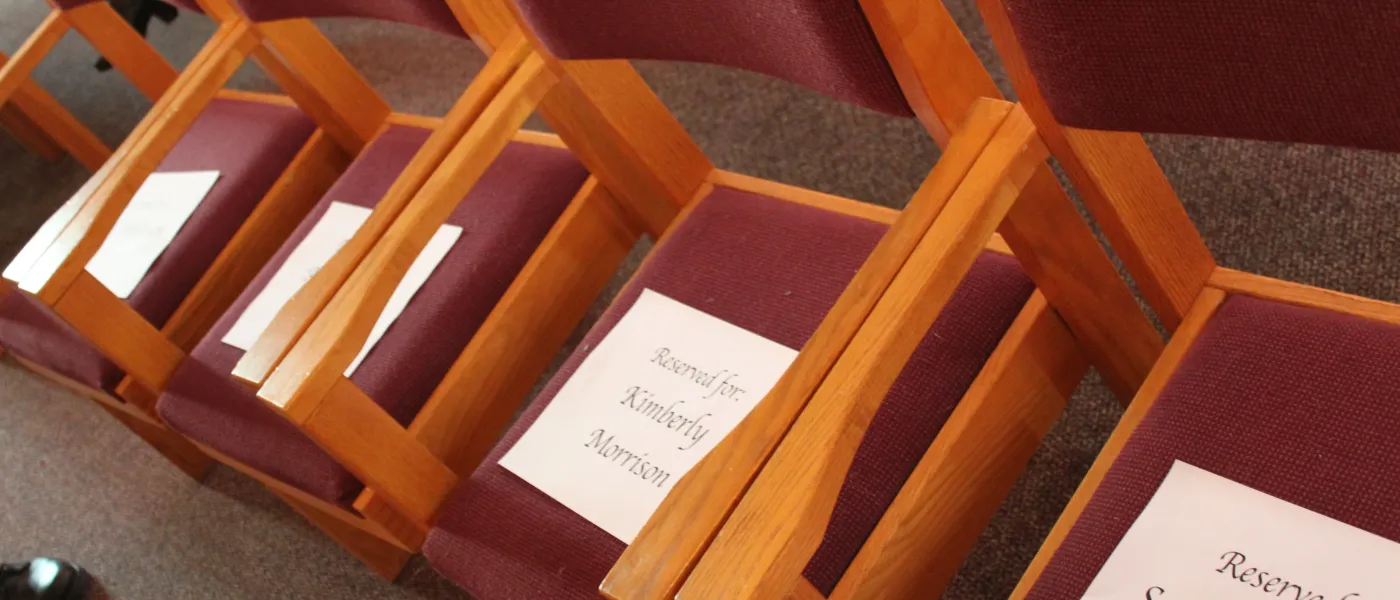
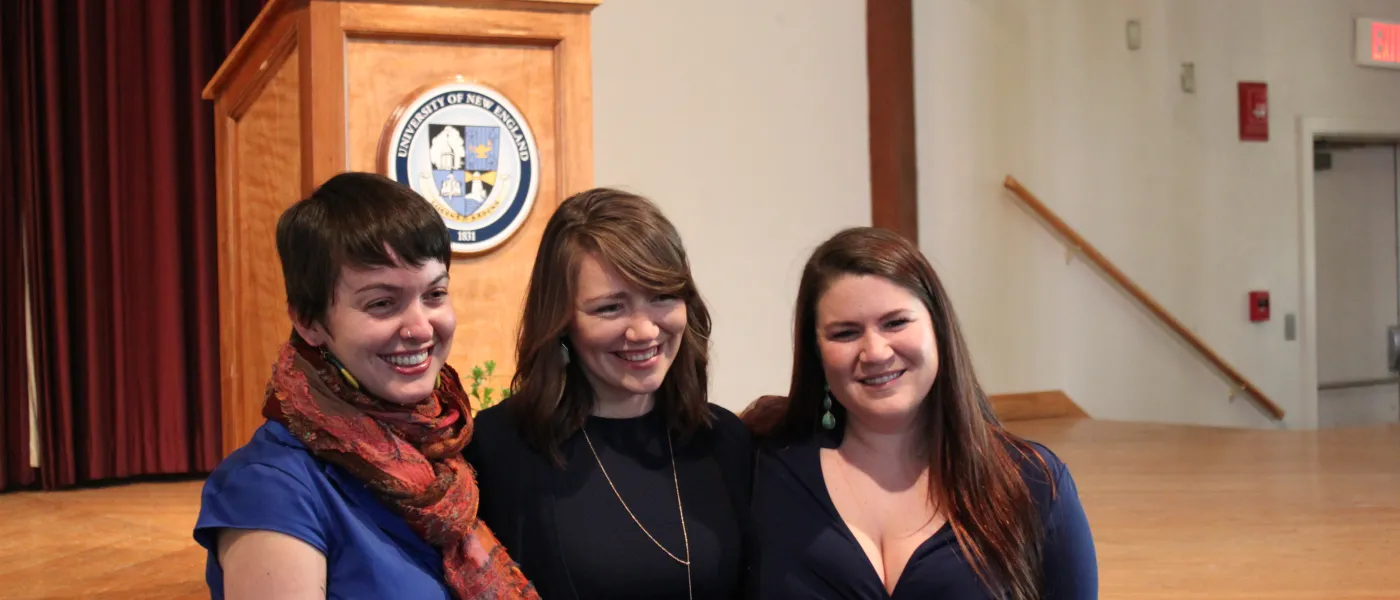
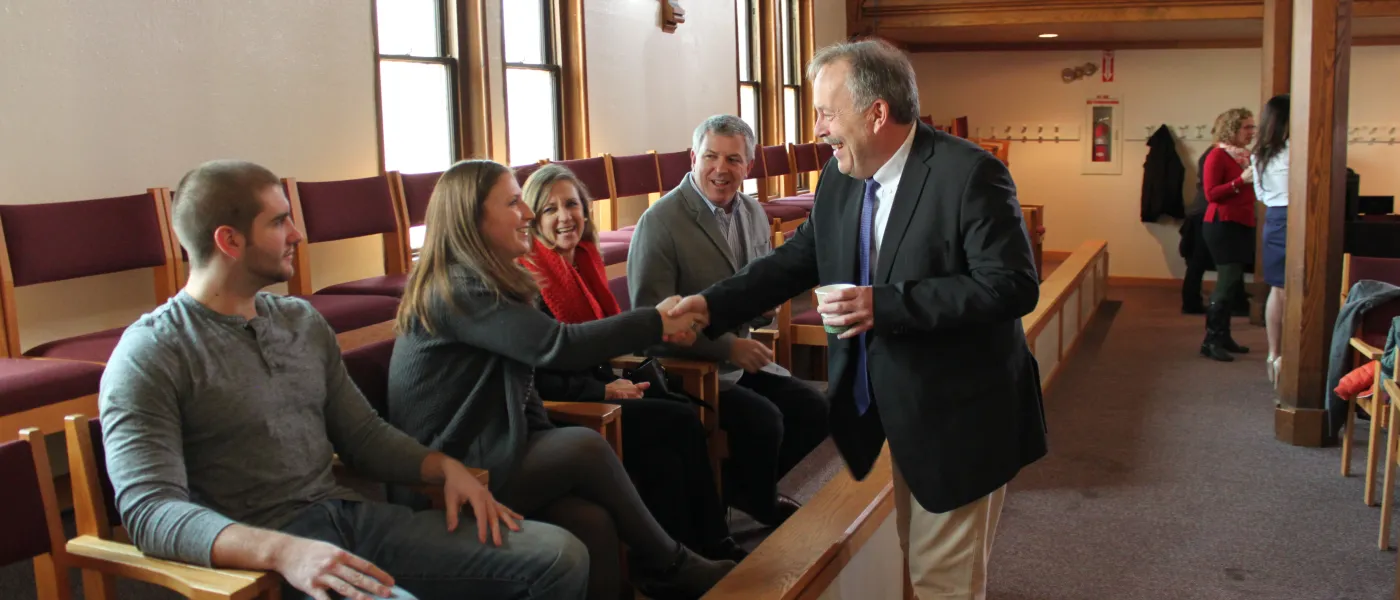
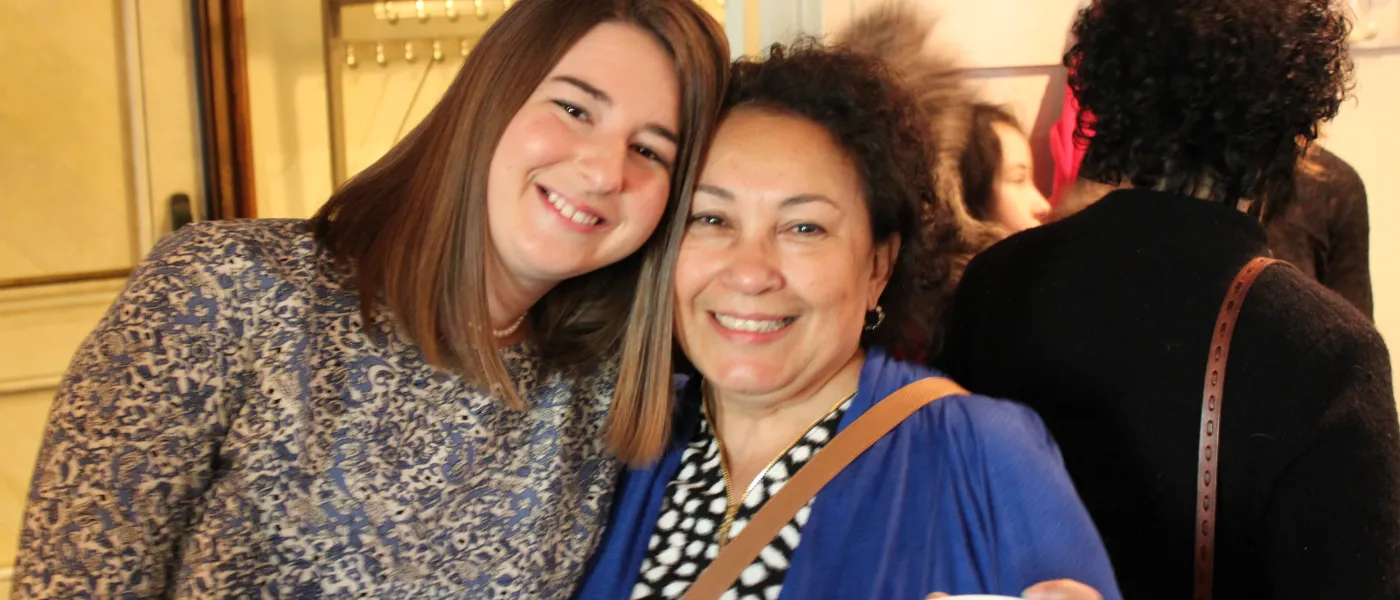
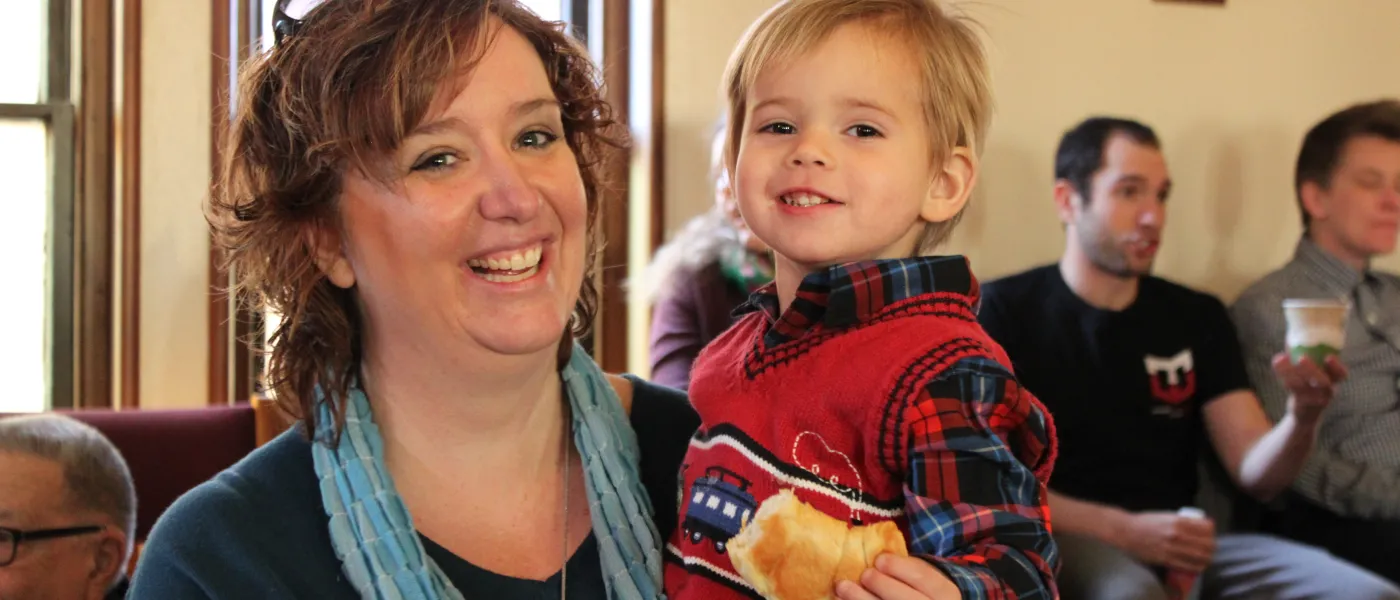
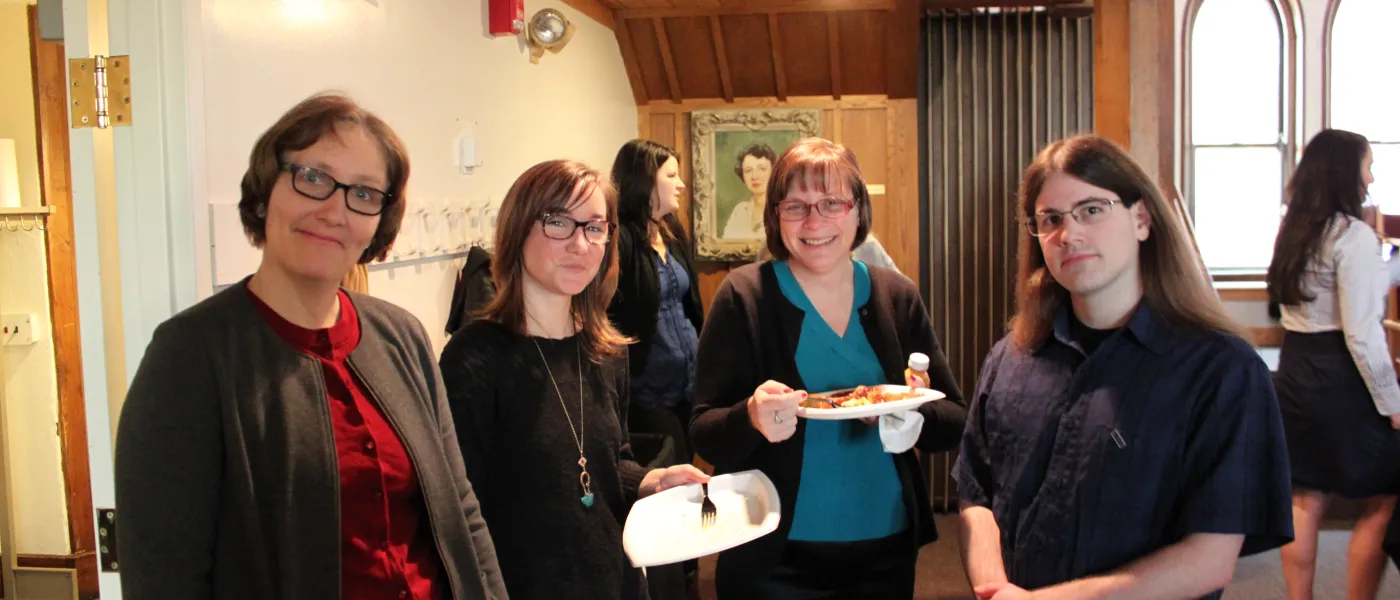
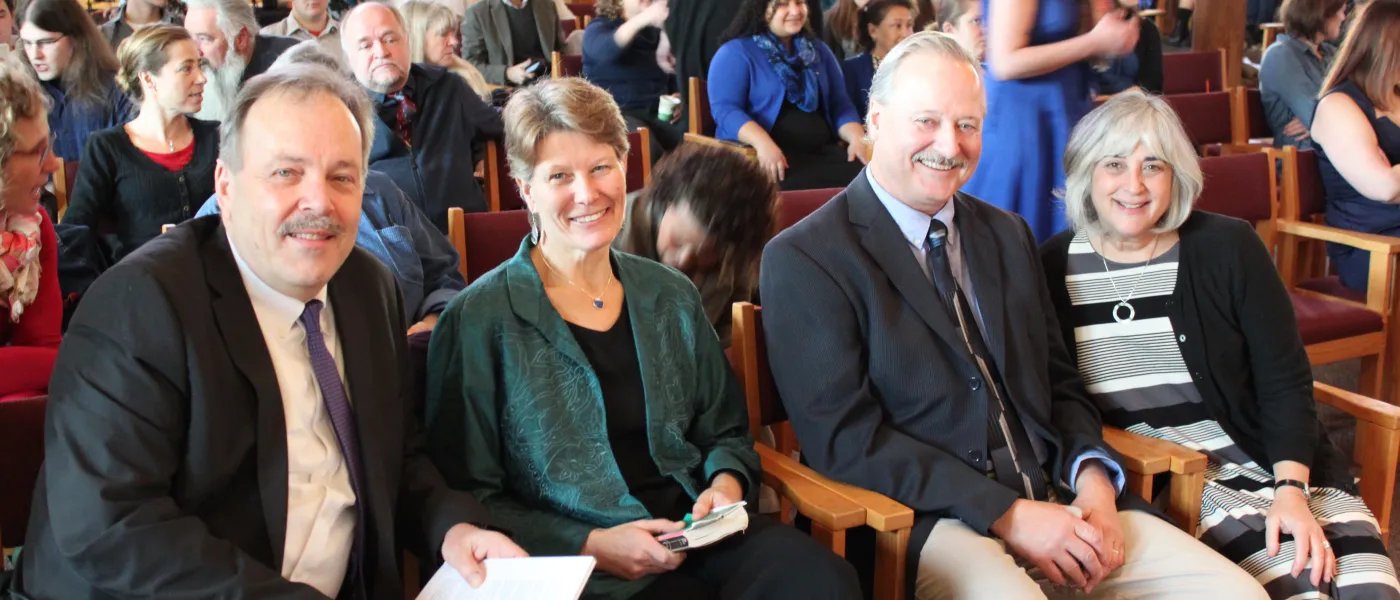
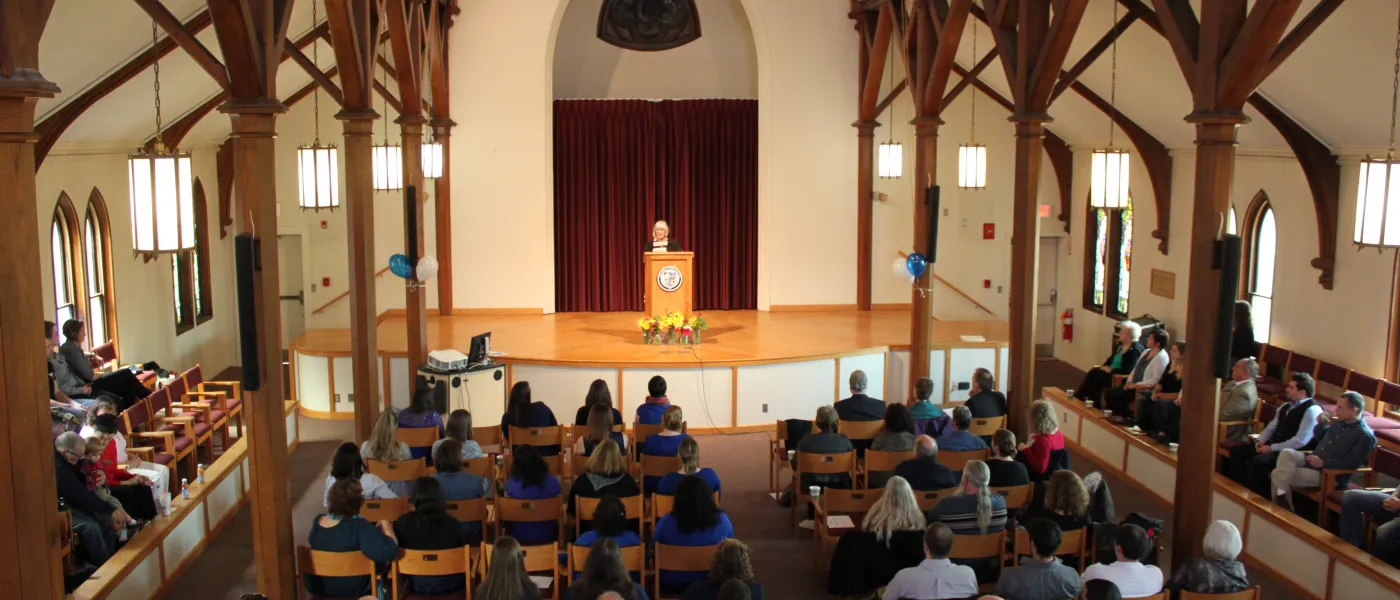
winter intersession arts course sends donation bags to local organization
Last-class activities from the 'Social Work & Creative Arts' course taught by Professor Lori Powers included hearing from an intriguing Music Therapist as well as filling bags of donations for the local organization, Refugee Services. Multilingual staff assist Secondary Migrant Refugees in Portland who are in need of immediate and short-term case management services. The services are designed to improve stability, independence and overall quality of life for refugees in Maine.
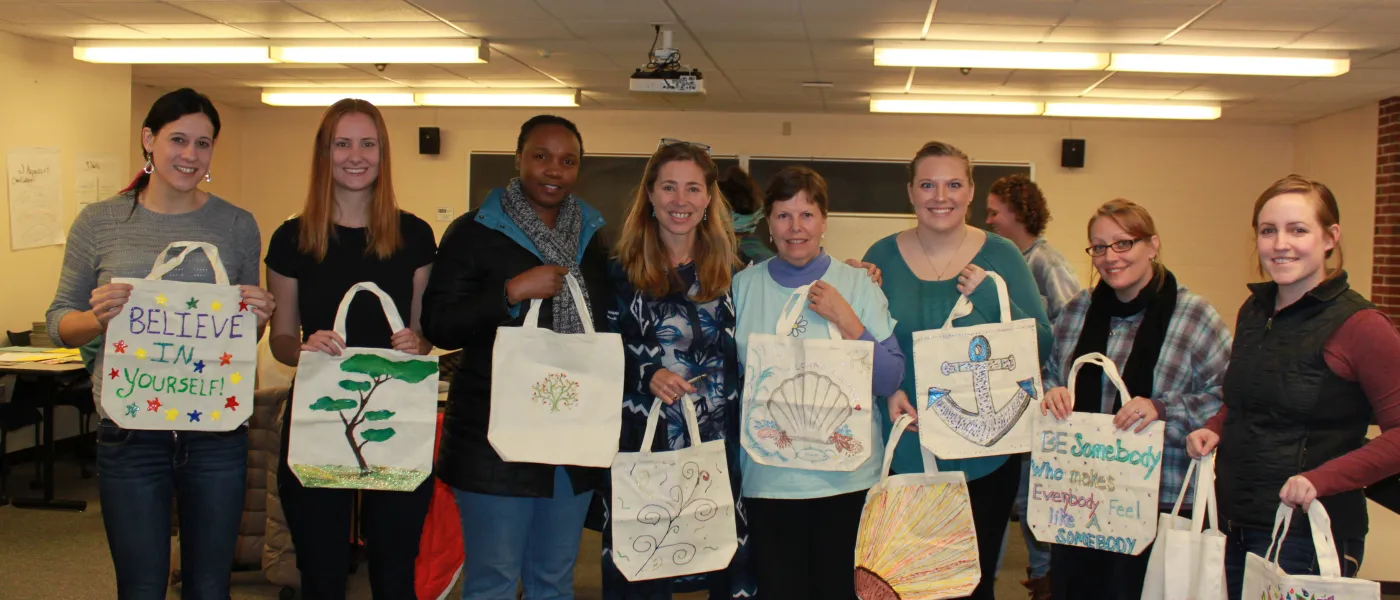
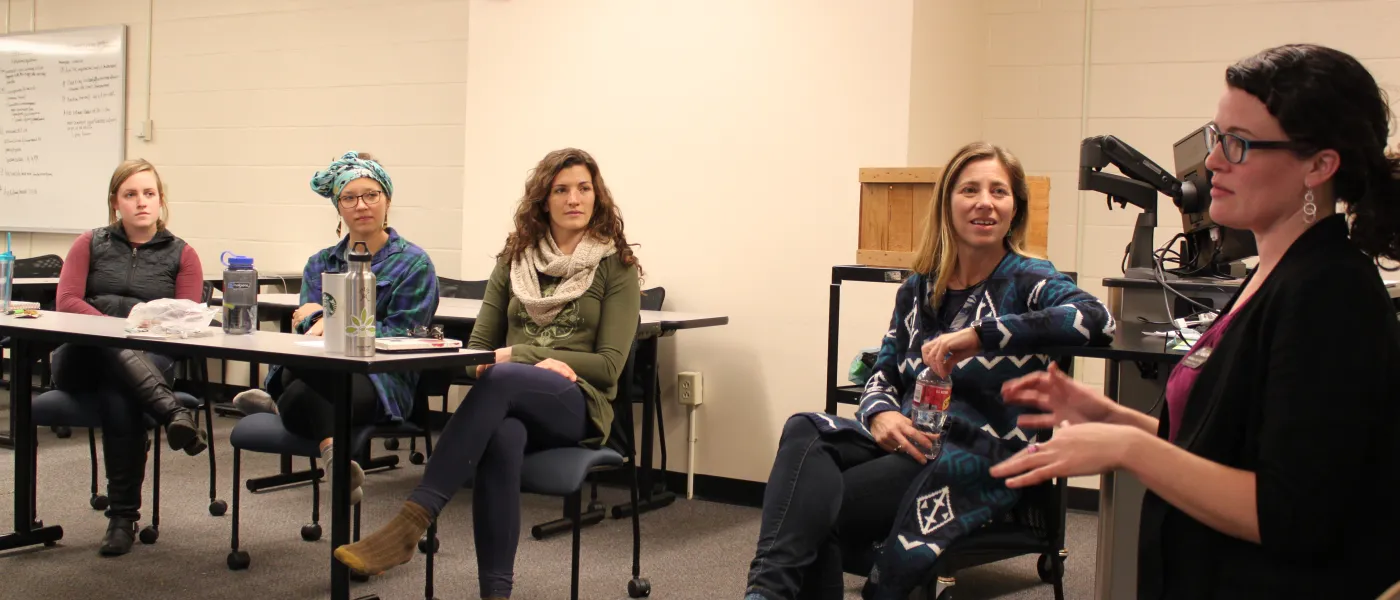
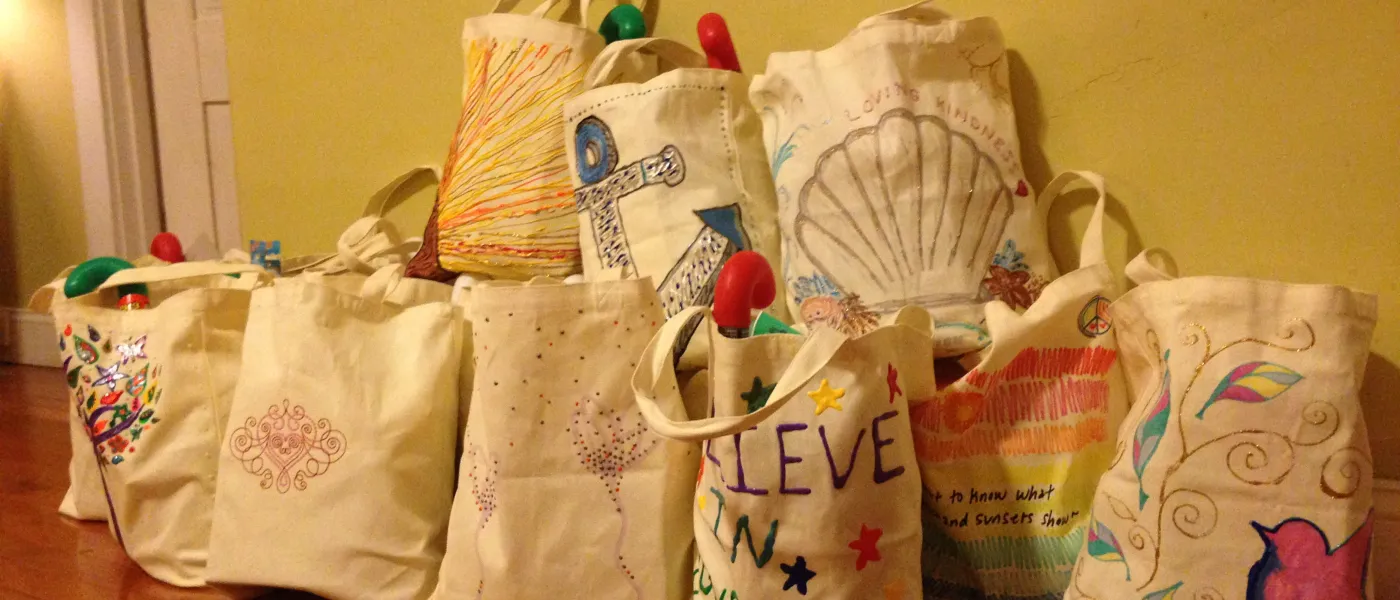
dennis dix, LCSW, featured in the atlantic magazine article on rural mental health in maine
Dennis is Director of Access at Kennebec Behavioral Health (KBH), which is one of our field placement sites here in Maine. The article is Part 2 of The Atlantic's piece called "Population Healthier" and is about mental health and rural Maine.
faculty publications and presentations
- Dr. Shelley Cohen Konrad and Professor Arabella Perez will be presenting as part of the American Interprofessional Health Collaborative Webinar Series on February 23. This webinar is titled "Social Determinants and the Context of Care: Going Beyond the Obvious for Prevention and Practice."
- Dr. Amy Storch and Dr. Leslie Yaffa co-authored "The Chronicles: A New Paradigm: An Integration of Online Social Work and International Travel: Who Would’ve Thought That An Online Course Could Travel to Jamaica?" and was published in the NYU Journal of Online Education.
- Dr. Nancy Shore has co-authored a paper that is currently In Press titled "Participatory Case Studies of Community-led Research Review Processes" in SAGE Research Methods Cases.
- Dr. Nancy Shore will be presenting at the upcoming Community-Campus Partnerships for Health conference Journey to Justice: Creating Change Through Partnerships that goes from May 11-14 in New Orleans, LA. Her presentation is titled Research ethics reconsidered in the context of community-engaged research.
- Professor Wanda Anderson will be conducting trainings on Practicing for Ethics in a Rural Community for the Sweetser Training Institute in March and April.
wchp and the School of social work get a bsw program!
We are very excited to announce that the School of Social Work and WCHP are now offering a Bachelors in Social Work program! We are now currently accepting applications for the program which starts in Fall of 2016. For more info on the program check out our BSW Website. For admissions information or to apply please go to connect.une.edu.
UNE School of Social WOrk named top msw program!
The University of New England’s School of Social Work was recently recognized for offering one of the top Master in Social Work Online programs in the nation by Go Grad, an online platform where aspiring graduate students of all ages, backgrounds and specialties can get the information they need to make knowledgeable decisions about their education. Check out the announcement here. Congratulations UNE SSW!
Current Students
allison strausberg, msw candidate '16: altered history book project
Allison Strausberg is a traditional-track MSW student who is participating in the Applied Arts and Social Justice Certificate program. Allison has a background in movement, theatre and dance for social change. Before coming to UNE, Allison did an internship in Ecuador studying principles of Theatre of the Oppressed. She participated in the jail class last summer in collaboration with the non-profit group, Maine Inside Out, which works with incarcerated and formally incarcerated people using theater to promote community building and catalyze social change. Allison’s Capstone topic was Racial Dynamics in Hip Hop Programming with Youth. She will be sharing this project and her findings with UNE on Feb. 23 at 8 a.m. Info and poster for this event are below under "Events." Here she is discussing a recent project completed for a Winter Session Course. PLEASE NOTE: We are unable to show many pictures of the actual book that was altered due to potential copyright issues. We have included however images of the pop-ups within the book that were created by Allison.
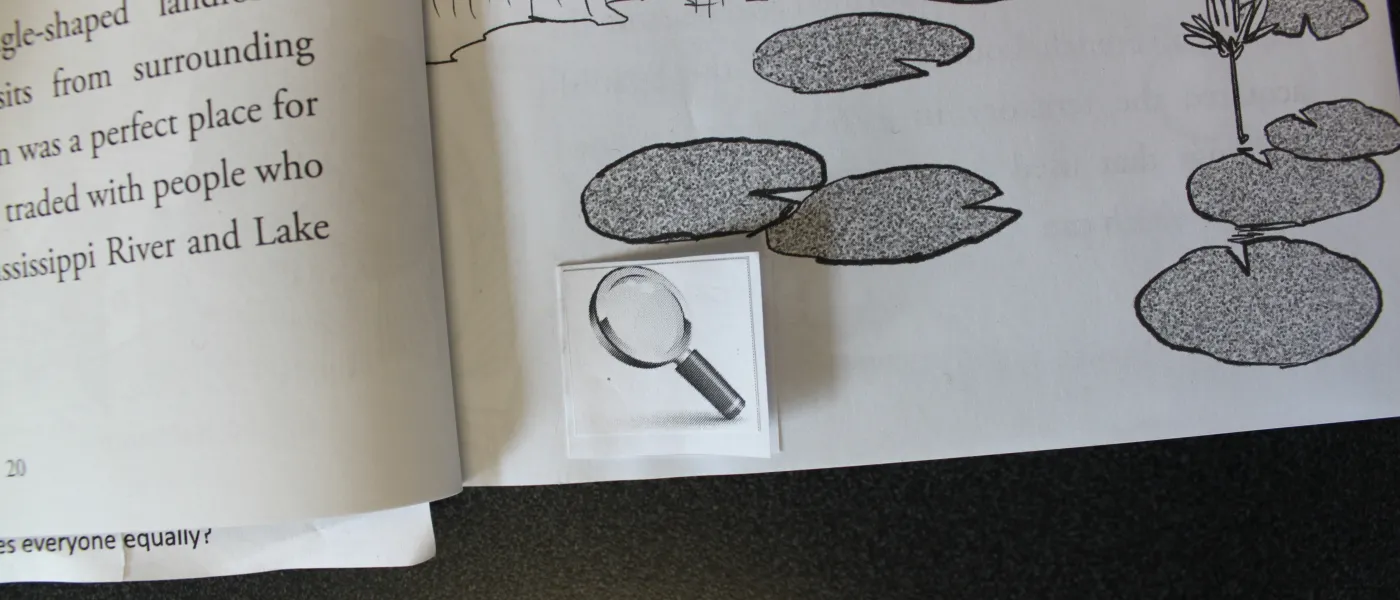
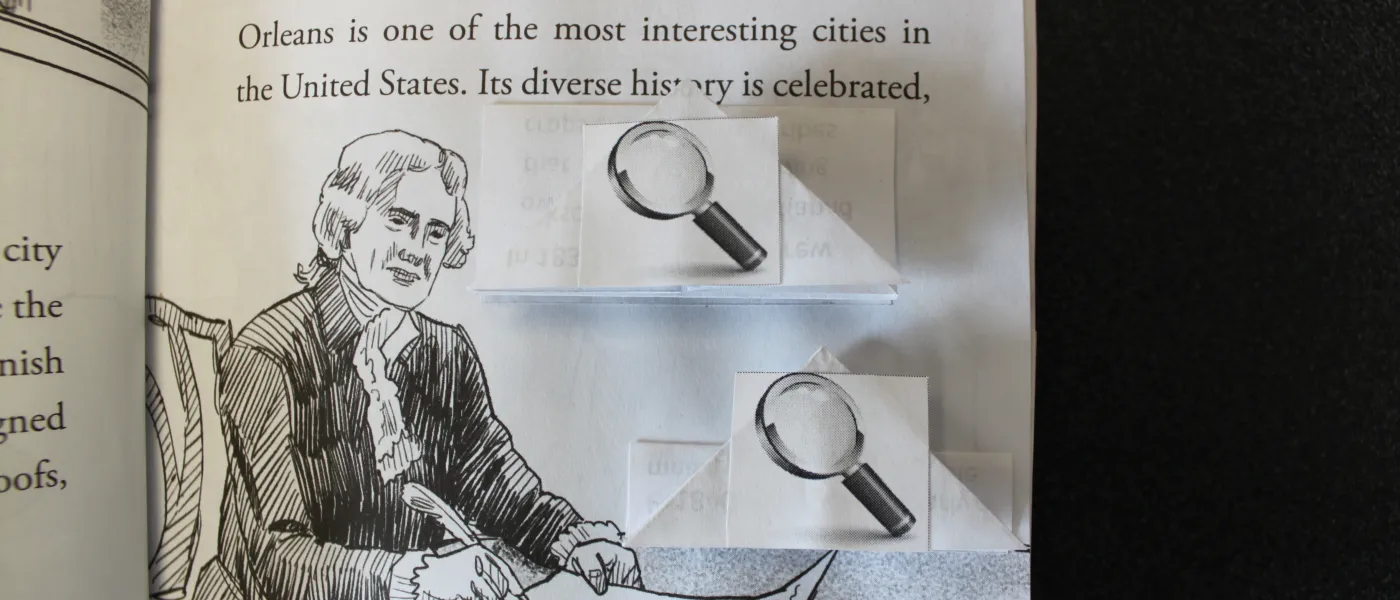
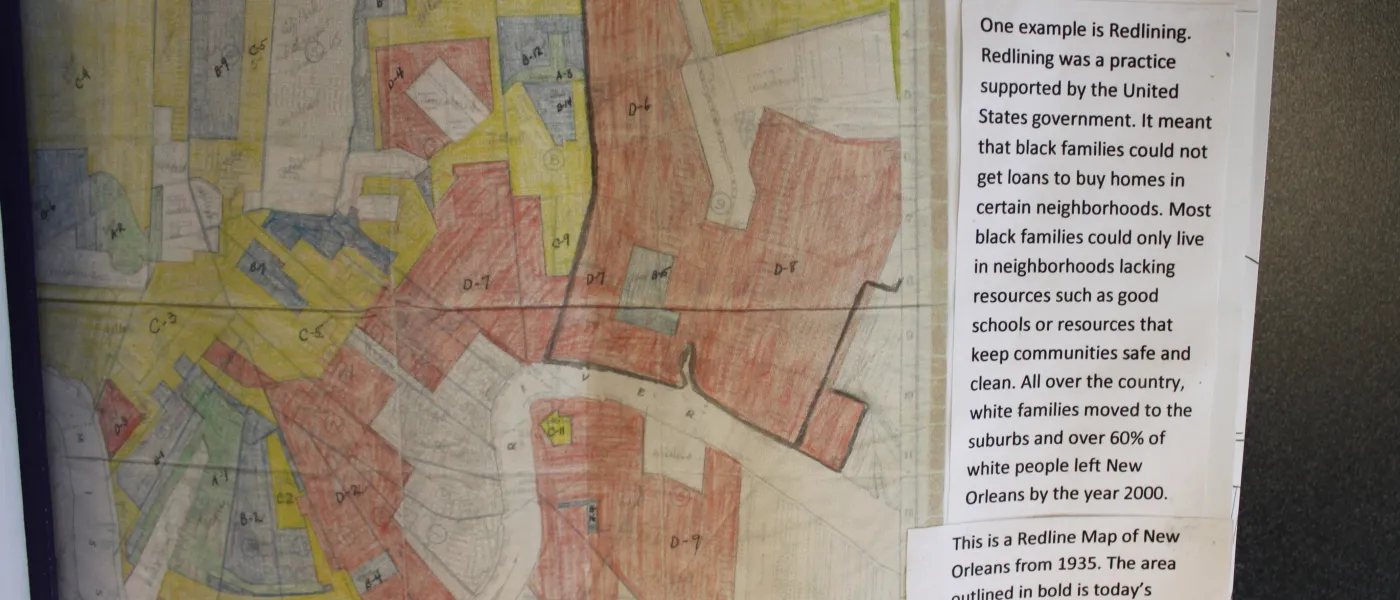
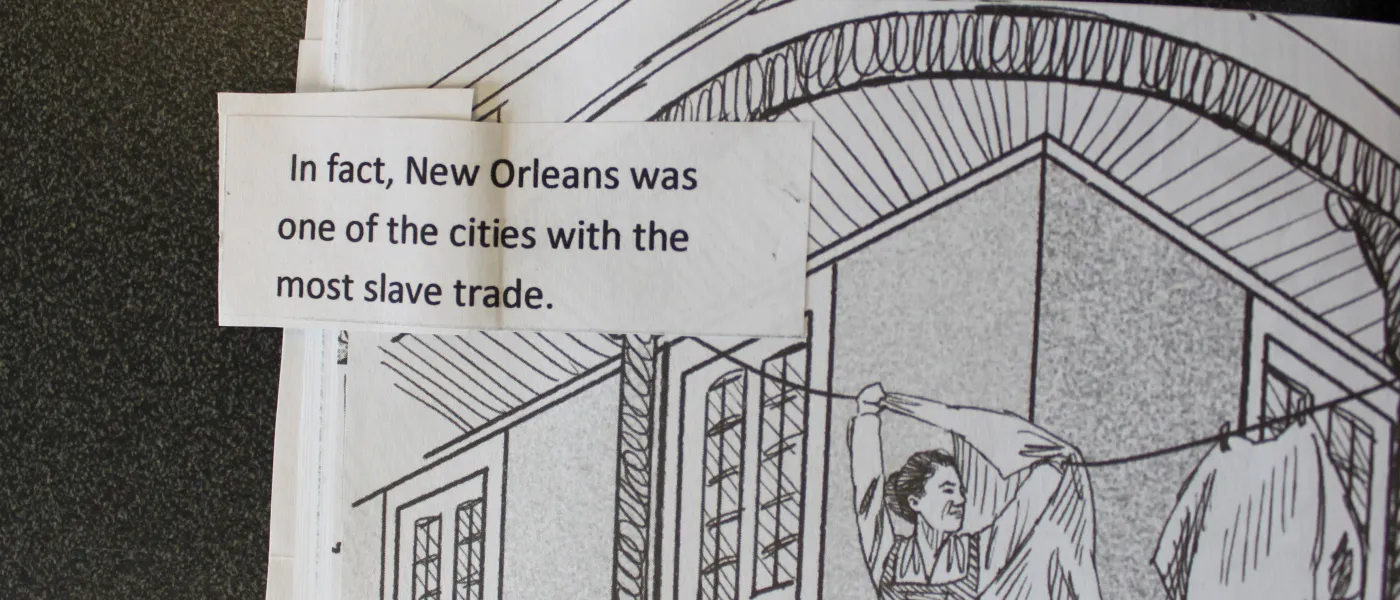
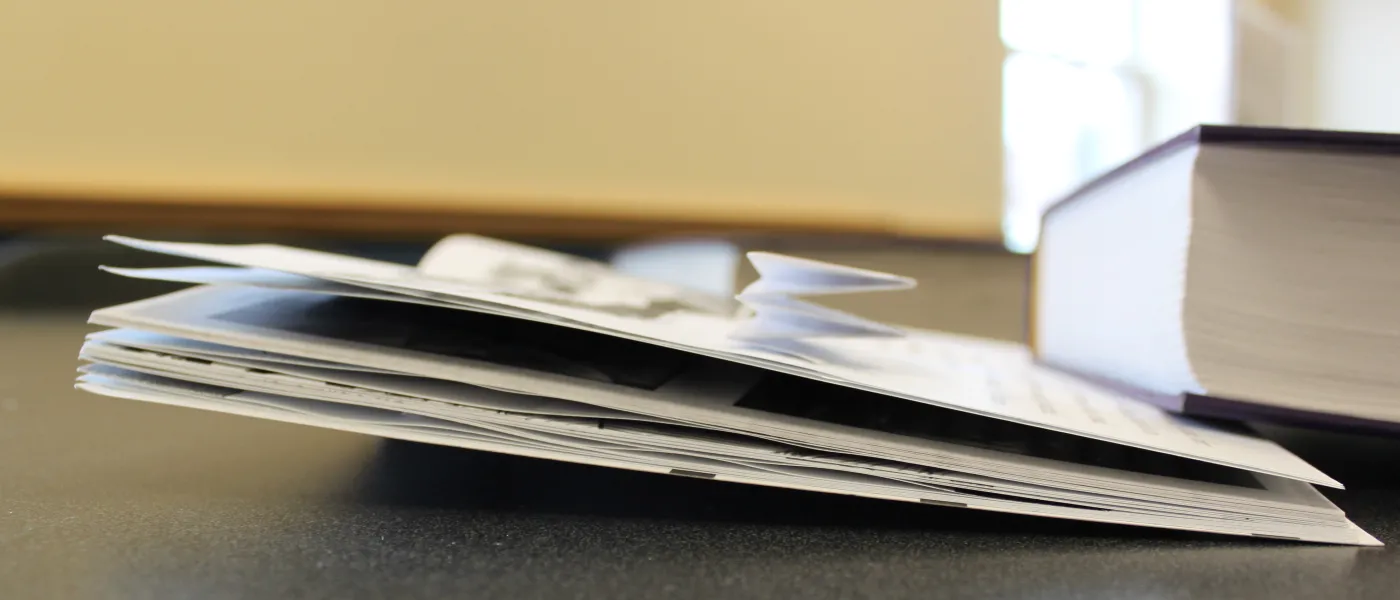
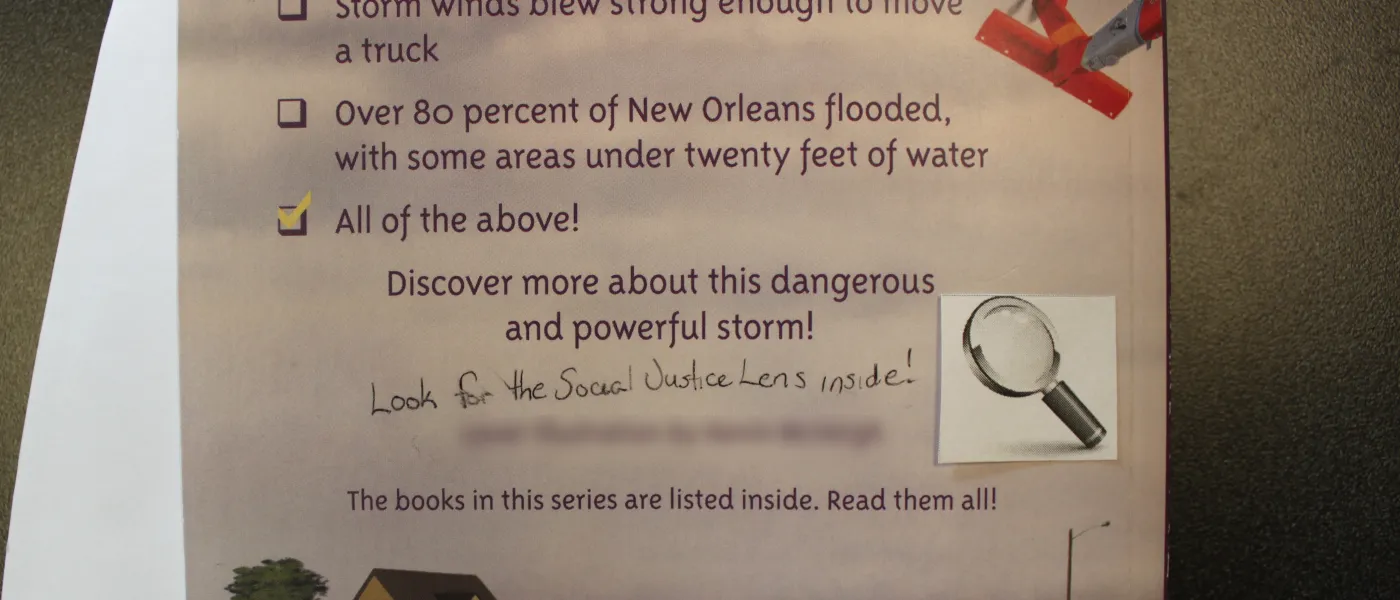
Can you describe what the project is and how it came about?
The project is an altered children’s history book that I completed as an assignment for the Social Work and Creative Arts winter session course. We were assigned a Creative Arts in Social Change paper and were given the option to complete an alternative to a paper in consultation with Lori Power, who taught the class. I decided I wanted to do something other than a paper for this project and started thinking about creating something interactive for children like a historical coloring book. I was thinking about how much is omitted, and sometimes how blatantly inaccurate, history that is taught to kids or even made readily available to adults can be. These omissions and inaccuracies so often propagate social injustice. During the on campus week of the class we visited the Maine Women Writers Collection and looked at altered books which I think is what prompted my idea of altering children’s history books. At this time I also decided to focus primarily on racism in the United States.
How did you select which book to alter, and what voice to use to “correct” the history? Were you writing for children/adults and why?
Ultimately I found an illustrated fact book about Hurricane Katrina. I chose this book because it would give me an opportunity to think about how historical racist policies continue to impact the lives of people of color today. I think that overall this book is really well done and what is most apparent is the subtle way racism is perpetuated through word choice and omission. For example, the term African American is only used on two pages in this 112 page book. That seems absurd to me considering that African Americans were disproportionately negatively impacted by Hurricane Katrina, in terms of loss of property and loss of life. It is problematic because without naming this throughout the book, children are most likely to imagine people who look like them when reading about the impact of the storm. So children who come from privileged backgrounds will miss this opportunity to recognize that all people do not experience tragedies like Hurricane Katrina with equal impact.
When I first imagined the end product, I thought I would do a really political, bordering on satirical, alteration of the book. When I began looking for a book to alter I started to really think about all of the difficult and intentional choices that have to go into teaching hard history lessons to children. I decided it would a more unique and interesting learning experience for me to alter a book for children given the choices that need to be made. I also felt that, while it is easy for me to be scathingly political, I believe that in order to make meaningful change, it is necessary to foster community rather than division. I felt that working on alterations for children would encourage me to cultivate a unifying voice rather than a divisive one.
How do you think kids will respond to hearing some of these difficult facts about the history of racial discrimination in this country, and how their after-effects are still resonating today?
It is hard to say how kids in general will respond. My goal was to make alterations that would be accessible to children from all socioeconomic and racial backgrounds. I really tried to present information in accessible ways as historical facts, and leave emotion out of the language. I think something that is interesting about providing information for children is that they are in such beginning stages of how they will use it. Some could feel really emotional about it or really confused. Some might just think, “oh, that’s interesting,” and not really have it click until later in life. I think this would all depend on their background, personal experience and personal temperament. I also think their response will have a lot to do with how their reading of the book is facilitated, whether by an educator, mentor, or caregiver. While that facilitation is out of the hands of any author, it highlights why it is so important to provide accurate information.
What was your process of preparing the final product?
To prepare for the final product I researched the history of slavery and racist policies in New Orleans, through modern day. While my original intention was to focus on racism, there were a few areas of the books that called on me to research and address intersectionality of oppression. Examples include the stealing of Native American land and the disproportionate impact of climate change on poor communities globally. Once I began looking for them, I found social justice omissions everywhere. I’m not trying to say that the author and illustrator are horrible, irresponsible people. I think it takes hard work and intentionality to recognize and name social injustice in a society that is designed to maintain it.
For the final product I placed the information I was adding to each page under a “social justice lens,” literally an image of a magnifying glass. I folded the inserts in a way that they could pop out and collapse easily. I decided to make getting to the social justice information interactive rather than just writing on the page with the intent that it would make it a little bit exciting and a little bit more work. I know that when I read sometimes I start to just gloss over the pages so I felt that added interaction would improve engagement with the information. Where appropriate, I also included phrasing that conveyed that social injustice happens all over the country, and not just in New Orleans with the hope that it would prompt the reader to wonder whether similar things had happened in their own community. I also included a brief prompt in the beginning and end touching on inequality and thinking about how to work with others to create change. I think that next steps are ultimately an area that depend on good facilitation to make an impact.
What were you hoping to accomplish?
To provide information about historical injustice and link it to modern day impact on real people’s lives. To prompt the reader to wonder about how this might have happened and how it might look in their communities.
One of the most compelling pages in your altered book is the map that illustrates the practice of “Redlining,” the Federal Government policy that deliberately and effectively denied Black Americans equal access to certain neighborhoods, resulting in certain neighborhoods like the Lower Ninth Ward in New Orleans being disproportionately represented by Black families today, and disproportionately adversely affected by Hurricane Katrina. What do you hope the viewers of your book will do with that information?
I included that because it provided such a clear example of how racist policies in the 1930s had a direct impact on the lives of people of color in the modern day. Again, the intended impact would depend on the individual reader, but my hope is to convey that racism is not over in the United States. For white readers in particular, my hope would be that this information would help them identify how historically rooted white privilege is.
What are the ethical considerations of such a project?
Choosing a book to alter was actually a lot more difficult than I had expected. I went to a Barnes and Noble in Maryland, where I was visiting over the holidays, and expected to find plenty of books that were inaccurate or didn’t represent people of color. What I found were a lot of books written by people of color telling difficult stories in beautiful, accessible ways. Even in places that I felt certain historical details were omitted, it seemed that the story was the important part and I felt it was not my place as a white person to correct the narrative told by a person of color. This brings me to another significant ethical consideration which is the limitations of my ability as a white person to fairly, ethically and accurately present history on the experience of marginalized peoples. I think that ideally this type of project should be done in collaboration with communities and people of color.
Do you have plans for other projects of this kind? How might this work and the work in the AASJ program affect your future career in social work? How might other social workers use similar projects in their practice?
I don’t have any concrete plans for more projects like this but working on it gave me a lot of ideas and things to think about. Not only about who controls the narrative but about how to present information that can cultivate communities to work for change. I think this is one of the most difficult and important considerations in using art for social action. I think it can be too easy to create work that is angry or righteous. That being said, I think a lot of artists have every reason to make that kind of work and a lot of artists do it well. I also think that in a lot of cases that kind of work only reaches people who are already willing to listen. The bigger challenge is creating work that is both accessible and drives action.
Stacy Foster, MSW Candidate '16: International Social work in the caribbean
Stacy Foster went on the UNE international Social Work study-abroad experience in 2015. She is currently a Licensed Social Worker in the State of Ohio. She currently works with the mentally ill and chemically dependent populations. Stacy has experience working with the homeless population, child welfare and doing outreach and advocacy work. She hopes to continue her work in the social work field at the macro level with a role in policy change, legislative advocacy and helping to establish better systems locally or even internationally that will have a larger-scale impact on the lives of many. She also hopes to pursue her PhD in the future. She hopes to return to Jamaica in the future to continue her passion for international social work. For more information on the International Social Work in the Caribbean course, please contact Professor Leslie Yaffa.
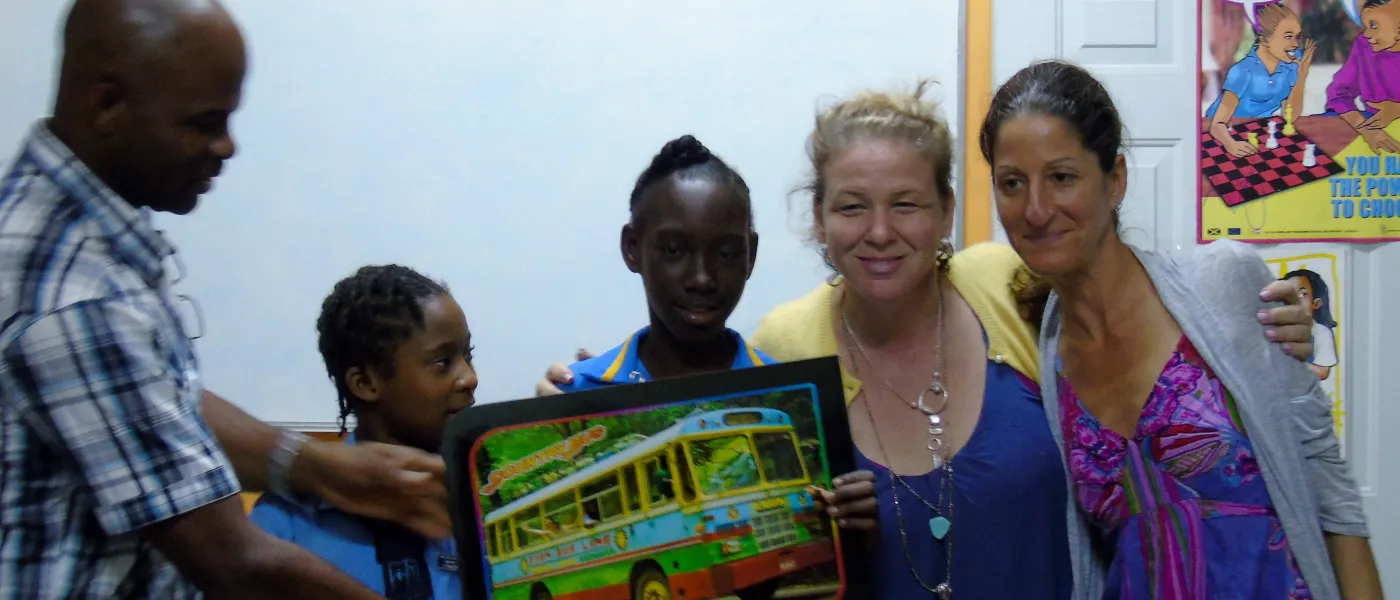
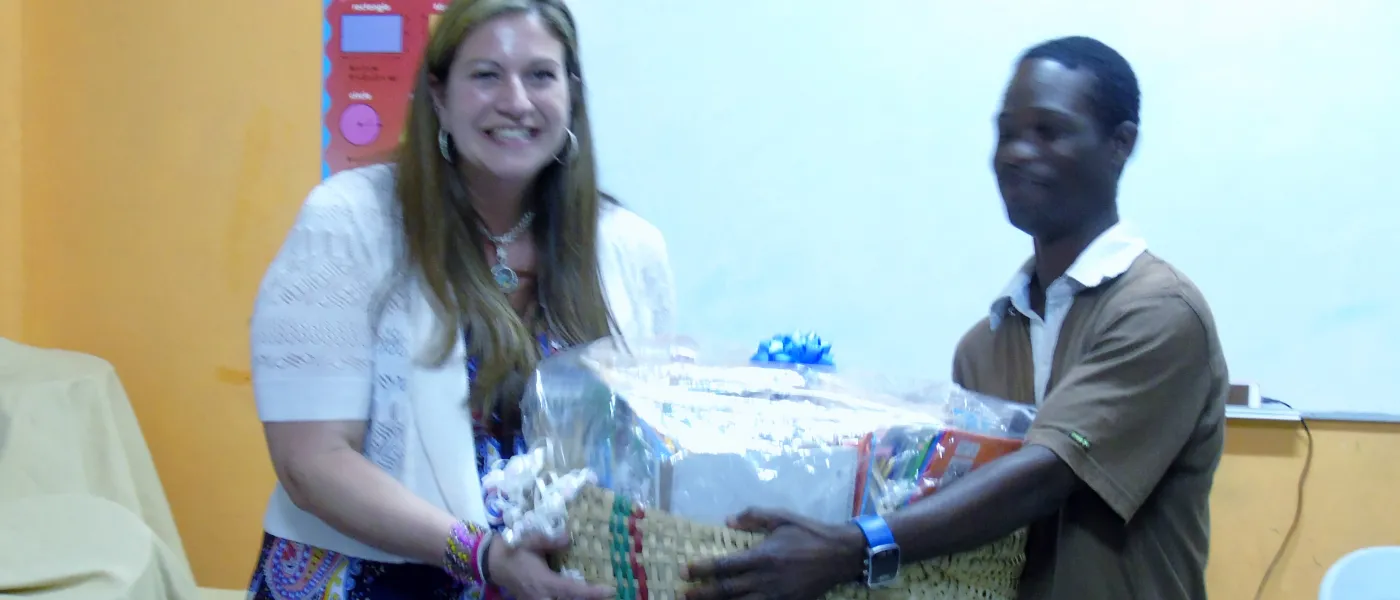
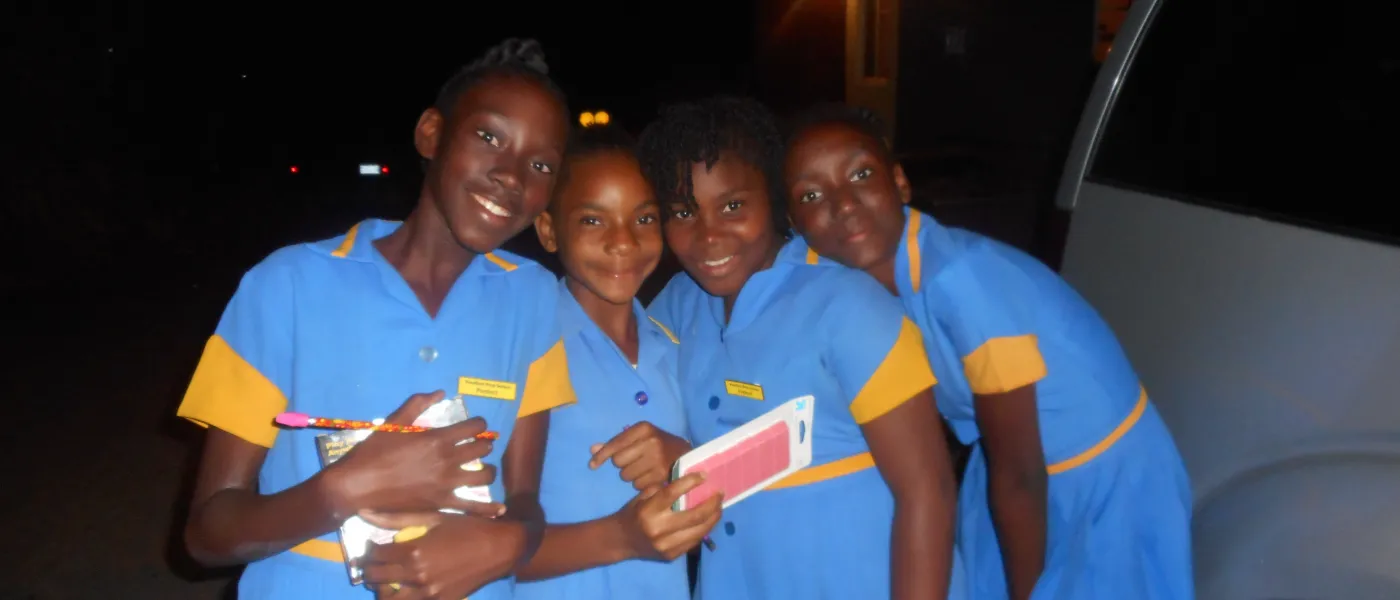
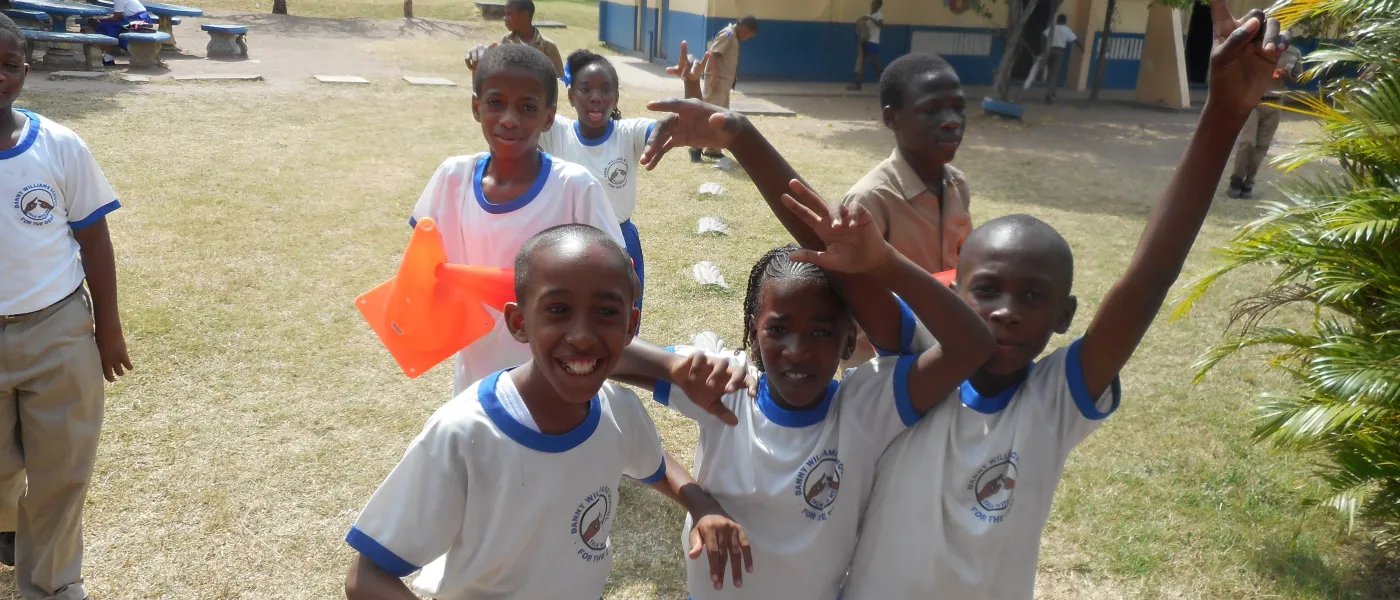
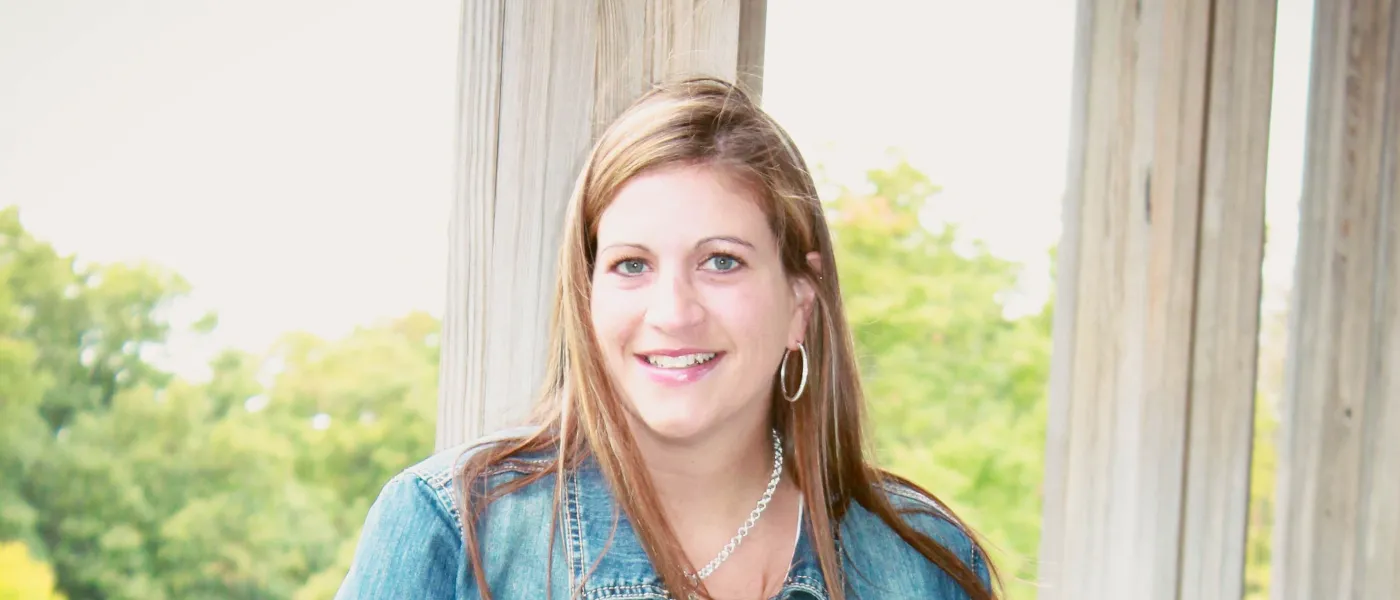
When I decided to take the International Social Work Practice in the Caribbean course and travel to Jamaica for a study abroad experience I had no idea that it would change my life, my perspective and my approach to social work practice. I have been in the social work field for more than ten years and through my experience I realized that there was so much more that I could offer the field. In many of the settings that I had worked, individuals were encountering similar issues and barriers that impacted their ability to be self-sufficient and to make lasting changes in their lives. This motivated me to pursue a dual concentration in micro and macro practice; I knew that I wanted the skills to change systems.
My interest in systems change and desire to help those that are oppressed and underserved prompted me to enroll in the International Social Work Practice in the Caribbean course and travel to Kingston, Jamaica. I felt that going to Jamaica would help me to understand systems and ways that I could have a larger-scale impact. The course helped me to see how I may someday have a role in policy change, legislative advocacy and helping to establish better systems locally or even internationally. While going to Jamaica did show me how I can have this impact, it also showed me how social work is different internationally and how international aid does not help countries become self-sufficient. It is just like the barriers that we see in systems that inhibit individuals from breaking through their oppression at the micro level.
As I reflect on what I expected on the week-long study abroad experience, I really only expected to be changed. I knew through our conference calls with Dr. Leslie Yaffa and Dr. Amy Storch prior to the trip that we would get a new perspective on social work practice. That is exactly what happened, and I had a life-changing experience in the process. I went to Jamaica as a social worker naive to the world in some ways and returned knowing that, despite political corruptions and financial hardships, I can still make a difference as a social worker.
The reason that we went to Jamaica as part of the course was to be able to see international social work in action and learn how we as social workers can have an impact internationally. This is increasingly important as we see that the world’s problems impact everyone. As social workers we are called to help address social injustice and the dignity and worth of every person. It was through our travel to Jamaica that we truly saw how we could have an impact.
We went to Jamaica to learn about the culture and how social work is different internationally. We also learned from the country’s strength, which exists despite struggle. Despite the corruption and financial hardship, Jamaican people embody great strength. It is because of their connections to the community and dreams for the future that they are able to continue to have hope. They are so thankful for the little things that most of us take for granted every day. They have a desire to see a change for their next generation and are very invested in the protection and success of the children of Jamaica.
I did experience personal transformation during the trip. One of the most shocking things for me about social work in Jamaica is that very little of their funding comes from government sources. This is in part due to political corruption and financial hardship loans that the Jamaican government received and now is unable to repay. However, through all of this we were touched by the people of Jamaica. They are some of the most caring people that I have ever met, they are proud, resilient and generous and have a true love for their country and others. This was an ongoing theme that we saw throughout the entire experience. What really touched me was when we went to the Woodford Learning Centre, an organization we raised funds for prior to going on the trip. They were so appreciative of what we had done for us that they gave us a gift in return. It was these funds that allowed them to stay open for another year and without that they would have had to close. This was shocking to me because the amount that we raised would have never kept an agency in the United States open and functioning. We also donated a basket of school supplies, games and toys to the children. It was humbling and amazing to see the children pick items that they would use in school and that they would be able to share with their siblings and other family members.
I have been back for a little more than a year now and this experience has truly informed my social work practice. I am reminded every day that social work practice is fluid. It is because of the people of Jamaica. that I realize that the people I work with are experts in their world and that I am just there to help guide them. The experience has also helped me to make sure that I am embodying the ethical values of the National Association of Social Work Code of Ethics. I keep the dignity and worth of the person as well as the overarching importance of human relationships at the forefront of my practice. It is because of my experience in Jamaica that I have learned more about myself, about the world and about the ever-changing social work practice. These are things I would have never learned without this experience..
If you have the opportunity to take this class I urge you to try it. You can learn more about our experience by checking out the UNE SW Students in Jamaica YouTube channel.
Alumni
molly o'reilly, msw '15
Molly graduated from the online program in December of 2015 after completing a block placement at the Hospice Nepal in Patan, Nepal working with palliative and hospice care. She is currently looking to network with other international palliative and hospice organizations to look for another country to conduct culural diversity in end-of-life care. Here is her story of her experience in Nepal.
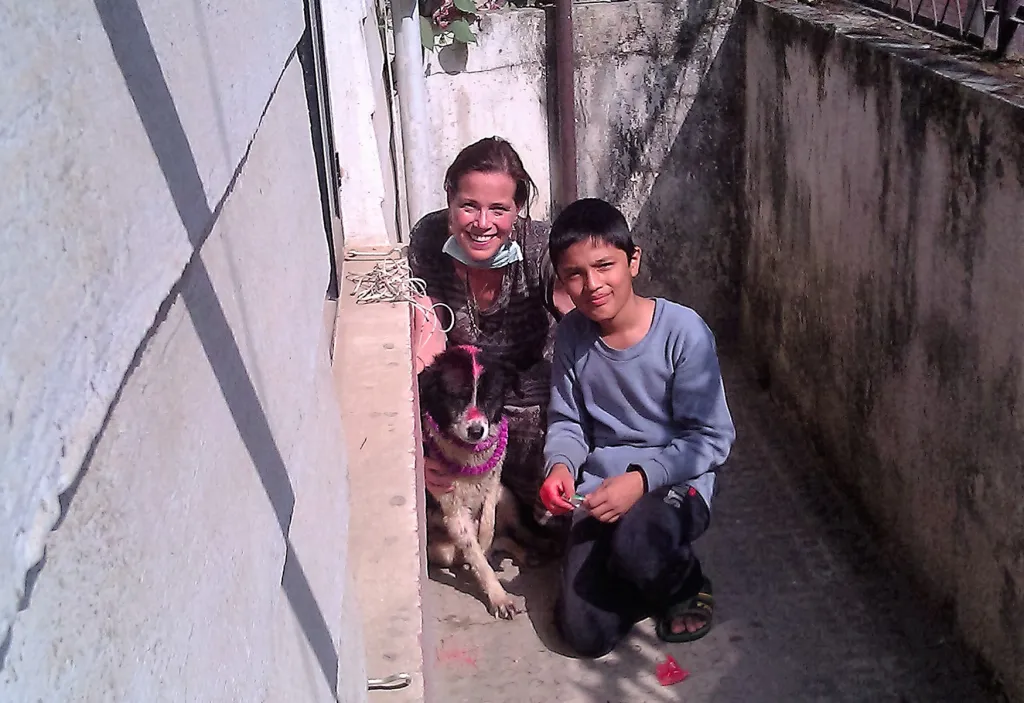
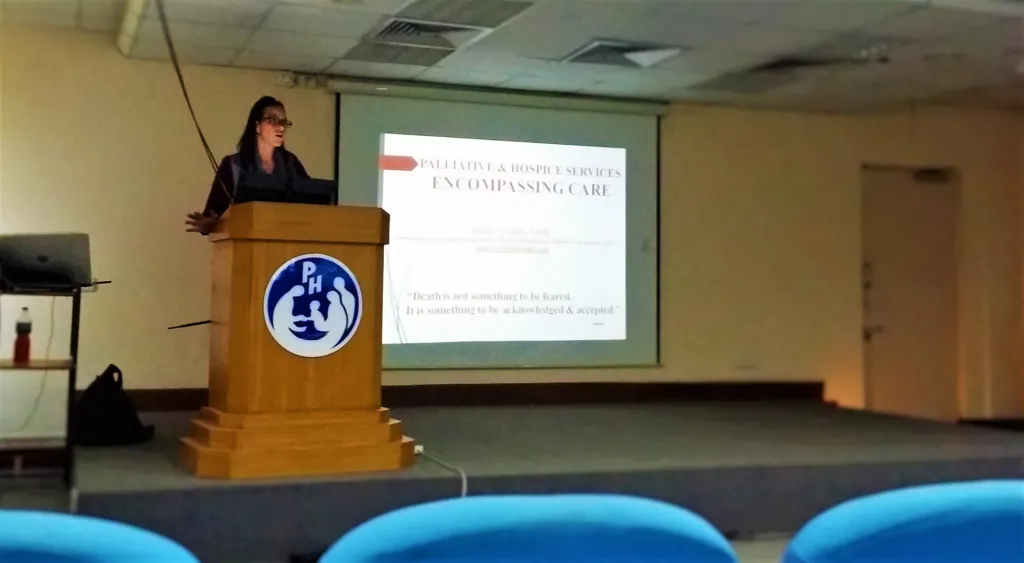
My trip started off tumultuously, as did my relationship with my host. I was daunted by my lack of local support as I began to discover the copious cultural dichotomies and challenges around every corner. Thankfully, my seminar instructor, Wanda Anderson, LICSW and my classmates supported me through the pitfalls every step of the way!
When it came to envisioning my advanced block placement, I knew I wanted something different—something to transform the way I practiced social work for the last fourteen years. The timing was ideal as my passion for palliative and hospice care social work was in transition. I seized the opportunity for an international internship where I could research the cultural differences in the quality of end-of-life care. The destination, Nepal!
Knowing I was traveling to an underdeveloped nation, I did my homework, or did I? I partnered with an ancillary community college that focused on expanding the development of social work as a discipline in Nepal, and teaches BSW students to become nearly the first formally "educated" social work practitioners in the country, which excited me. Disappointingly, though, the system lacked structure and organization.
When my placement began at Nepal’s oldest hospice program, I dove in head first—back in my element again. The learning curve was steep and I soaked it all in like a sponge. The medical and psychosocial aspects proved similar to what I already knew true in the U.S. Concerns I would have hypothesized cultural in nature are possibly global.
Ultimately, this journey exposed mixed findings and emotions. My knowledge of the world has been broadened for better and for worse, but my goals in life have been solidified. I know I belong in the field of international education for the fundamental human right of death with dignity.
To those reading this, please consider an international internship—one that brings undiscovered cultures. Working cross-culturally will require utilization of integral self-reflection and critical thinking processes that we have developed as ethical social workers. Help create a healthier world, as well as enhance the well-being of America. Embark on the unknown of a worldly culture, and experience the discomfort of not knowing. You will never, ever regret it!
Molly O’Reilly, MSW
MN, USA
Faculty
Amy storch, msw, ph.d, l.c.s.w
Dr. Amy Storch is an associate lecturer of Social Work at UNE. She received her Ph.D. From Walden University, MSW from Fordham University and BSW from Rochester Institute of Technology. In addition to teaching, Dr. Storch is a Licensed Clinical Social Worker and a nationally certified American Sign Language Interpreter. Her research interests are in the area of individuals with disabilities, specifically, the Hard of Hearing and Deaf Population. Other areas of focus are crisis intervention, substance abuse and mental health. Dr. Storch is an enthusiastic New York Yankees fan who currently resides in New York City. Here she describes a very recent trip to Africa where she was volunteering.
Chimps, Elephants, Hippos, oh my!
Come join me in a trek — to the bushes in Africa. Out of altruism and a passion for exploring life, an experience once thought about as a possibility came to fruition. Thus, becoming a reality and an experience I'm humbled to be able to share with others, most importantly, you.
Unbeknownst to me, this adventure all began with a television program, The Today Show. In an episode, coverage focused on volunteer work and some suggestions of reputable organizations to consider. Anyone who knows me will tell you that I have an affinity for monkeys and this particular episode on the Today Show named an organization, African Impact, that allows volunteers to get up close and personal with chimpanzees. Imagine my excitement — so, off I went investigating further.
As social workers, we all know the importance of being an agent of social change and paying it forward. There are many ways of doing these things for both humans and animals alike. And, taking care of oneself is just as equally if not more important. I spent several weeks immersed in the woods and boy did Mother Nature provide. Each day there were different tasks to complete, which included behavioral enrichment activities for the chimps, food preparation, enclosure cleaning, tree cutting, painting, farming, data collection and much more. Time built in for leisure was also a part of the weekly activities, which consisted of trips to town, interacting with the locals, bird watching, nature hikes and one of my favorites, sundowners. The African sunset is unlike any other that I’ve seen.
When my volunteer project ended, I ventured off to travel solo to other parts of Zambia, Zimbabwe and Botswana. In Zambia, aside from visiting the local shops and the like, the one thing that was an absolute thing to check off my bucket list was bungee jumping. Bungee jumping Victoria Falls with the Zambezi River below, ready for this...5, 4, 3, 2, 1 – BUNGEE! At 164 feet, was simply exhilarating. In Zimbabwe I was nestled back in the bush again sleeping inside a tent with all kinds of wildlife around me. Imagine if you will, instead of an ocean view, daily I had a view of hippos, elephants, crocodiles and more all right at the zipper of my tent. I went on boat and land safaris in both Zimbabwe and Botswana where viewings of wildlife, game animals, elephants, giraffes all in their natural habitat truly is a stunning sight and the pictures I share does the experience no justice.
As my guide told me one day, Africa truly is a place where you will be close to nature as you ever can get. And, let me tell you, he's wasn’t kidding.
The Code Debate
by Professor Tom McLaughlin
It’s reaffirmation season here at the school of social work. Reaffirmation is the process which the school completes every seven years with our accrediting body, the Council on Social Work Education. The reaffirmation process affords the school the opportunity to spend some time reflecting on our curriculum, our mission, vision and values.
As part of this process, the faculty of the school is revisiting the NASW code of ethics as part of our process.. Some on the faculty argue that the NASW code of ethics is limiting in its scope of what is social work practice. Others argue that the code is firmly established in social work practice settings and, as such, is a practice reality for graduates.
Internationally, the issue of ethical principles in social work practice from many different organizations has been combined into a single statement. The International Federation of Social Workers (IFSW) provides a unifying statement of ethical principles which embodies some of the NASW code but also extends the NASW’s narrow focus to include a greater emphasis on social inclusion and macro practice. Both IFSW and NASW focus on human dignity, self determination and relationship building with people. However, the two codes diverge on the area of practice. The NASW code has, at its core, a focus on individual practice and practice methods. The code includes an emphasis on social worker competence, integrity and service. The code suggests the following in its competence statement: “Social workers continually strive to increase their professional knowledge and skills and to apply them in practice.” In contrast, the IFSW code does not focus on the practitioner, but rather on the well-being of the individual as suggested here: “Identifying and developing strengths – Social workers should focus on the strengths of all individuals, groups and communities and thus promote their empowerment.”
Which is correct? Good question. That is a question similar to “what is good art?” It probably depends on who you ask. As the school refocuses its mission, vision and values to embrace a more global practice base, it will be important for us to study, align and contribute to the growing body of knowledge as it relates to social inclusion. Social inclusion has been embraced not only by the international social work community but also by the United Nations and the World Bank as important steps toward changing the lives of all people. On balance, many social work practitioners, will engage in one-to-one social work practice in the United States and may themselves be members of NASW. Perhaps someday the two codes will be in closer alignment. As such, the answer to which is correct is probably a combination of both. As the phrase goes, “I don’t know art, but I know what I like.” Maybe that same phrase holds true for on the individual level for social work practitioners. As the faculty continues to discuss this, I am sure we will arrive at a well-reasoned, grounded solution. Stay tuned!
Opportunities & Information
essay contest open to bsw, msw, and phd social work students!
The Editorial Collective of the Journal of Progressive Human Services: Radical Thought and Practice (JPHS) wishes to ignite a discussion among our student readers about the activities, ideas and policies that define, or should define, radical social work in today’s economic, political and social contexts. What are the particular challenges to, and opportunities for, radical practice, in your community?
Toward that end, we are funding an essay contest for all three levels of study in social work — BSW, MSW and DSW/PhD — with a cash award of $1,000 for one winning essay in each category of student. In addition, JPHS will publish the three winning essays in our internationally-subscribed journal.
Essays should be between 1,000-1,500 words and respond to the question “What is radical social work, and how is it relevant to your community today?” If you cite the literature, please use APA format for citations and references. Please contact Elisa Orme with any questions.
Please submit your essay as a word document attached to an email addressed to kgifford@une.edu by March 31. Please put “Essay for JPHS Submission” in the subject line of your email. In the body of the email please include your name and preferred email address. Do not include your name on your essay so that we can do a blind review. Winners will be notified by May 15.
SOCIAL JUSTICE ARTWORK NEEDED!
Do you know of an artist or group whose art has a social justice theme? The art can address such themes as poverty, addiction, environment, gun violence, food security and many others! We need new art for the Hersey fourth floor hallway, and perhaps even the hallway near Parker Pavilion! If you, or an artist or group you know, would like to hang their art for a period of two or three months, please contact Lori Power (207) 221-4493 or lpower@une.edu). Many thanks!
CALL TO ALUMNI: STUDENTS NEED YOUR HELP!
If you have graduated from UNE with your MSW two or more years ago, and are interested in a volunteer opportunity that will enhance your skills as a professional social worker, we need you! Our program is full of amazing students who need Field Instructors for their foundation and advanced field placements. As an alum, you understand the importance of Field Education and the expectations of students in our MSW program. Our field instructors have flexibility in how field instruction is delivered. You may meet with your student by phone, video conference, or face-to-face. If you'd like to provide field instruction to one or more students, please contact Director of Field Education Kelli Fox. Thank you!
STUDENT ORGANIZATION
The UNE School of Social Work Student Organization (SWO) was created as a response to the need for student involvement in the creation and maintenance of policies, procedures and structure of the University of New England School of Social Work.
The purposes of the organization include:
- Promoting communication, collaboration and community among students, faculty and administration in the UNE School of Social Work.
- Securing and advancing student rights and responsibilities for their education.
- Organizing and uniting the student body in such a manner as to achieve our collective goals and to provide the special needs of individual groups within the student body.
- Enriching our educational experience by providing and allowing for the growth and development of individual skills and interests.
- Participating actively in matters of concern and social justice.
Every student in the SSW is considered a member of this organization. No dues or applications are required. All students are welcome and encouraged to become active members! Whether you join us weekly or just once in the year, we look forward to getting to know you!
Please check out our website for more great information!
Starting January 27, meeting times for the SWO will be at Wednesdays at 4:30 p.m. in Parker Pavilion on the Portland Campus.
Linda M. Piper
MSW Class of 2016
University of New England
CAREER/JOB SERVICES FOR STUDENTS AND ALUMNI — A SPECIAL TIP FROM VICKI WALKER
Jobs, careers, work...Whatever you call it, you can find the resources at this UNE webpage for career services:
It's a great resource for part-time work while in school and also has resources for professional employment after graduation.
There is literally something for everyone at this site. Take a look at the numerous Resources this site provides. There are all kinds of job listings, from part time jobs, government jobs and hospital jobs to regional and international jobs opportunities. Students can take advantage of all sorts of help finding a job. Whether it’s updating your resume to learning how to network, you will find it here. Faculty can find out how the Career Center can collaborate on classroom presentations as well as recruit employers for job fairs.
Speaking of Career Fairs, the Career Center will be hosting a Health Professions Career Fair this February 10, 2016 from 11 a.m.–3 p.m. in the Finley Rec Center. Have the Career Center help you brush up on your resume and make plenty of copies to hand out! Lunch will be served.
Also, the School of Social Work receives Social Work job opportunities every week. We have a three ring binder in the office listing all the jobs we receive weekly. These jobs are also forwarded to Jeff Nevers in the Career Center.
Upcoming Events
social work student organization events
- Wednesday, March 9: Regular meeting followed by "Movie and Munchies" in Blewett 6 (Portland Campus) from 4:30-8 p.m.
CAPSTONE DISSEMINATION & DISCUSSION: RACIAL DYNAMICS IN HIP-HOP PROGRAMMING WITH YOUTH
Student Allison Strausberg will be presenting her Capstone Dissemination for the Applied Arts and Social Justice course on Tuesday, February 23 at 8 a.m., Proctor 12.
TRAUMA INFORMED SOCIAL WORK PRACTICE: OPEN HOUSE AND PRESENTATION BY ARABELLA PEREZ, LCSW
Please join us on Saturday, March 26 from 9-11 a.m. for a presentation by Professor Arabella Perez, LCSW. The presentation will be followed by an Open House about UNE's on-campus CSWE Accredited Master of Social Work program. Continental breakfast will be served. The presentation and open house will take place on the Biddeford campus, Marcil Hall, room 216.
